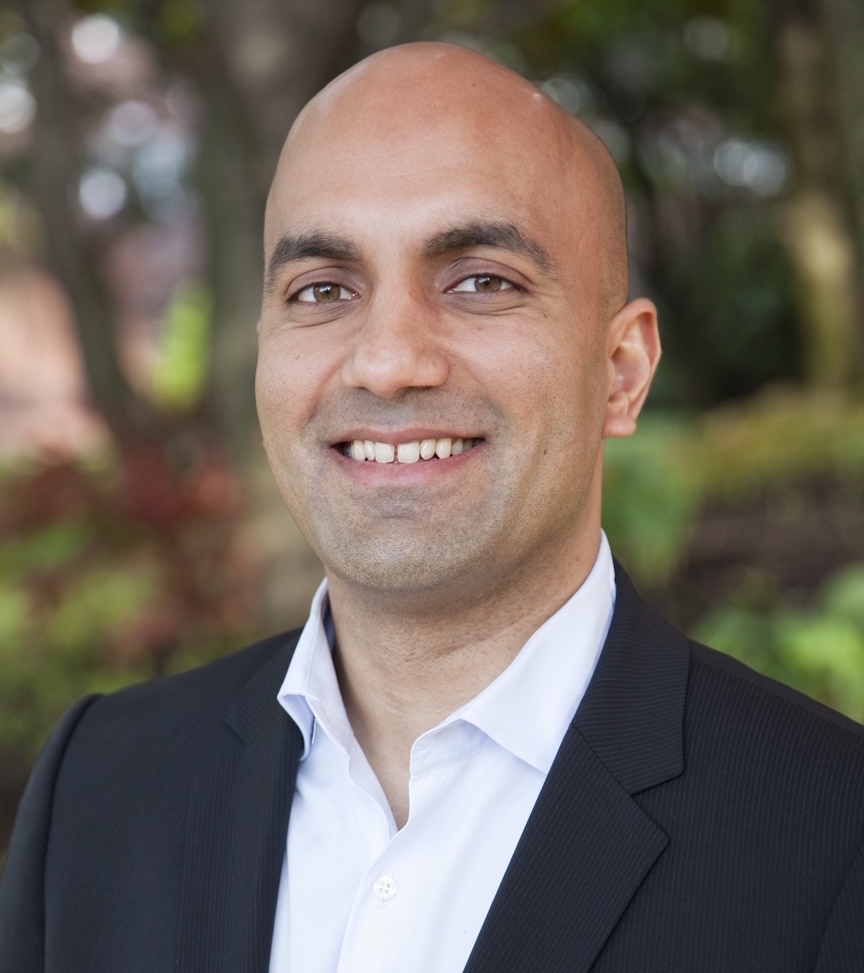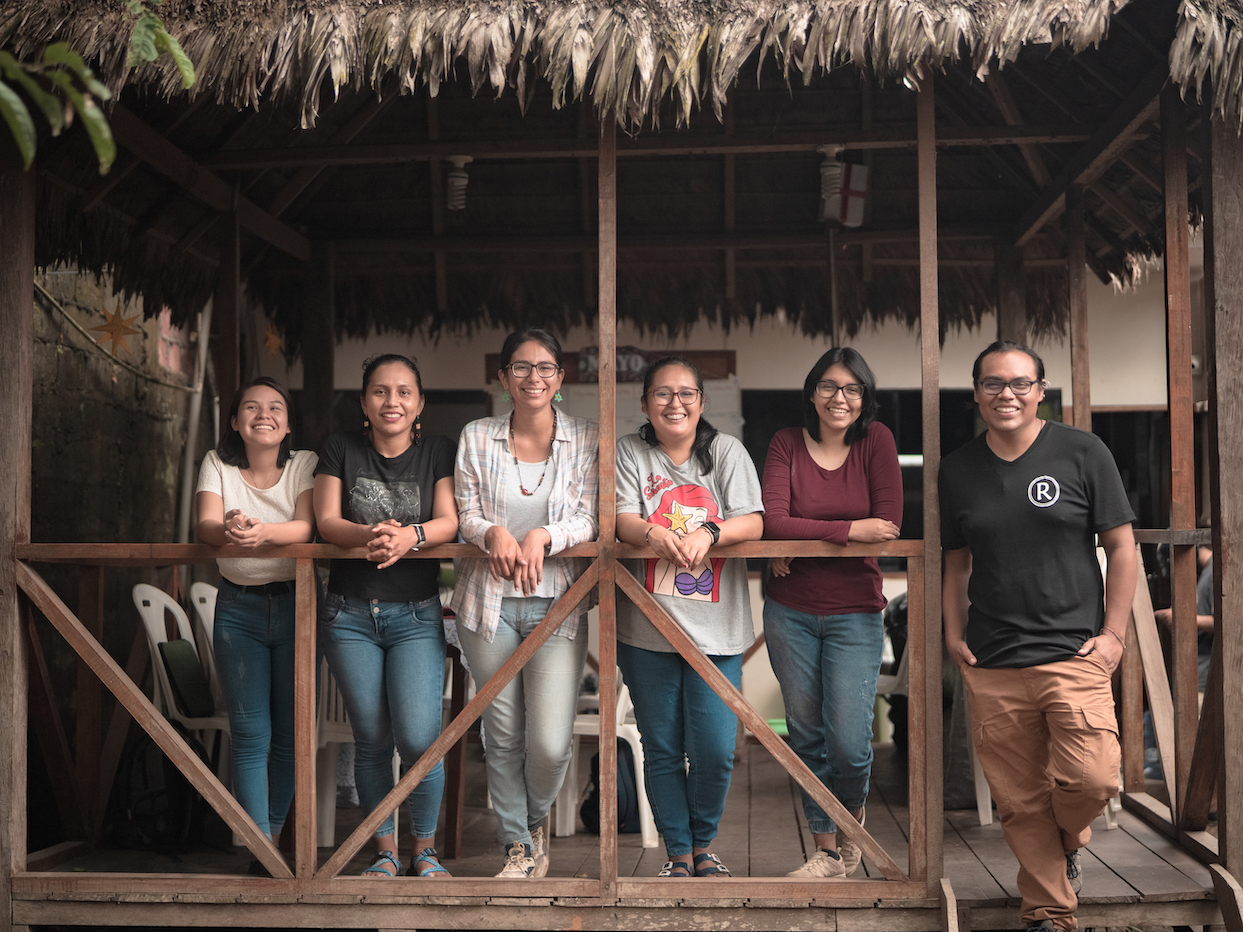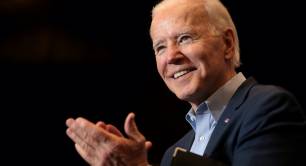What Trump 2.0 means for the global impact community
ANALYSIS: The effects of Donald Trump’s return to head of the world’s biggest economy will be felt beyond US borders – and the president-elect’s values can appear at odds with the concept of doing business for good. Impact leaders from around the world share their worries, but point out too that there are reasons to be hopeful.
“A shock to the system”: this is how the US Impact Investing Alliance, an organisation dedicated to supporting the growth of impact investing in the US, described Donald Trump’s landslide victory at the recent US presidential election.
The image the Republican president-elect is projecting is not one of a man on a mission to do business for good – and some argue that his individualist, isolationist and divisive politics are at odds with the values of positive social and environmental contribution promoted by the impact community.
“Trump’s understanding of the market is antithetical to social entrepreneurship. The marketplace is the only arena for individual – not collective – advancement and success,” says Ashoka fellow Alberto Alemanno, a professor at top business school HEC Paris and founder of the Good Lobby, a consultancy that supports nonprofits, activists, progressive businesses, and philanthropies to influence policymaking. “The very concepts of social economy and social innovation will struggle to find some room.”
Trump’s understanding of the market is antithetical to social entrepreneurship
The US is the world’s largest economy, and – important for Pioneers Post’s audience to note – North America is where over a third of the world’s US$1.5tn worth of impact investments come from. The next US administration’s influence will be felt well beyond the country’s borders – so how is the global impact community getting ready for Trump 2.0?
We asked global and regional organisations from across the world – including the GIIN, B Lab, NESsT, Latimpacto and Euclid – for their analysis.
There will be changes and challenges for the impact movement
Trump’s policies are likely to result in major changes and challenges for the impact sector – albeit indirectly. The first to arise will be the president-elect’s infamous unpredictability.
 “The big challenge with this transition is that there’s a lot of uncertainty, and we don’t exactly know what will be prioritised,” Amit Bouri (pictured), CEO of the Global Impact Investing Network, tells Pioneers Post. “There’s a lot of open questions about what the administration will prioritise and what we can expect.”
“The big challenge with this transition is that there’s a lot of uncertainty, and we don’t exactly know what will be prioritised,” Amit Bouri (pictured), CEO of the Global Impact Investing Network, tells Pioneers Post. “There’s a lot of open questions about what the administration will prioritise and what we can expect.”
But the Good Lobby’s Alemanno argues that we can already anticipate that the president-elect’s policies’ impact at home and abroad will increase the need for social enterprises. For example, Trump’s pledge to deport millions of immigrants from the US and reduce welfare support will “create huge gaps in state supply for basic goods, and only social entrepreneurs and philanthropy may be able to fill that in”.
He adds: “Outside of the US, the Trump administration’s impact will be felt by millions of Ukrainians – most likely forced to accept Russian domination (at least in the east of the country)” and by Palestinians vulnerable to changes in US policy in the middle-east.
In addition, Trump’s radical positions on domestic debates, for example, around women’s rights, will have repercussions abroad, a person with knowledge of the matter told Pioneers Post: “US government entities will need to tone down mentions of gender equity (and climate change), which is what they had to do in the last Trump administration, as they sought to continue global work quietly.”
In Latin America, social businesses and impact investing are set to experience major challenges, as Trump’s “restrictive policies” could “reshape economic conditions, alter funding sources, and shift regional social dynamics”, argues Carolina Suarez (pictured), CEO of Latin American impact investors network Latimpacto.
Trump’s stance on migration, which is likely to lead to the deportation of many Latin Americans from the US, would create both an economic and human strain on the region, increasing the need for social businesses’ services and investment to fund them, she explains.
The president-elect is also likely to reduce US funding for climate action, leaving a gap for impact investors to fill in order to help local communities to build climate resilience. And Trump’s plans to impose tariffs on everything not American-made could mean some social businesses would lose access to a huge market, she says, requiring the help of investors to help them build new trade partnerships.
However, the social economy in Western Europe could be relatively unscathed, argues Toby Gazeley, policy lead at European social enterprise Euclid. Speaking in his personal capacity, he says that’s mostly because “Joe Biden wasn’t a particularly friendly president for Europe” anyway, but the social economy might feel indirect impacts, such as reduced public funding if economic conditions worsen. The main strain would be on Eastern Europe, where a rushed peace deal for Ukrainians would create an influx of refugees, requiring even more action from social enterprises that have already provided much of the support.
A bigger problem might lie with the loss of authority from international institutions such as the UN, of which Trump has been particularly critical. The recently adopted UN resolution on the social economy, for example, could become worthless if these institutions are “completely undermined or not respected”, Gazeley argues.
- Read more: ‘Historic moment’ for social enterprise as UN adopts resolution on social and solidarity economy
The resilience of social enterprises and impact investors will stand them in good stead
While social enterprises and their investors around the world might feel under strain as a result of Trump’s policies, they have regularly demonstrated their resilience when times are tough – and stand ready for the impacts of the new presidency.
To start with, the impact community has learned to be independent from government help. Kirsten Dueck, CEO of NESsT, an impact investor and social enterprise accelerator operating in Latin America and Central and Eastern Europe, explains they work in countries that have seen “more than their share of political upheaval and inequity over the years”. Each time, it was social enterprises, small and medium enterprises and indigenous communities that rebuilt local economies, she adds.

Over the 27 years during which NESsT has been in operation, the organisation, as well as many impact investors and social enterprises, have learned not to expect any support from governments, Dueck says. Trump’s administration is unlikely to favour strategies that benefit the impact economy – “that’s an understatement”, she adds – but it’s not like they were counting on it. “I think this is a reminder that that’s not where the solution is going to come from.” Most of NESsT’s funding comes from private foundations, family offices and faith-based organisations.
- Listen to our Good Leaders Podcast with Kirsten Dueck
As a result, the social economy has the freedom to support initiatives independently of public authorities’ positions. NESsT, for example, launched the Violet fund, which supports businesses that employ LGBT+ people in Poland and in Central Europe, even though Poland was under a strongly anti-LGBT government at the time.
Impact investing has not had that much government support anywhere except for a few markets
The GIIN’s Amit Bouri argues that the sector is relatively sheltered because it is mostly driven by private investors, not governments, who see an opportunity in prioritising having a positive impact on people and the environment. “It’s important to highlight that impact investing has grown over the past 15 years and has not had that much government support anywhere except for a few markets.”
He adds that while he thinks political shifts are “very powerful and have a lot of implications for geopolitics”, he still expects impact investing to continue to grow and maintain its momentum around the world – just like it did for the past 15 years despite changes in politics, a pandemic and recent political pushback against ESG investing. “We also see that the issues that are motivating people to prioritise impact investing are only rising on the agenda, whether it be economic inequality, protecting nature and as well as addressing climate change and the way it affects people’s lives,” he adds.
The impact movement must unite against divisive rhetoric
To better face the challenges emerging from another four years of a Donald Trump presidency, the world of business for good unanimously calls for the same thing: build bridges across divisions and focus on your mission.
 “Amidst divisive and discriminatory rhetoric, we must find new and innovative ways to advance our work toward an inclusive, equitable, and regenerative economy,” says Sarah Schwimmer (pictured), head of external affairs and interim co-lead executive of B Lab Global, the nonprofit overseeing B Corp certification.
“Amidst divisive and discriminatory rhetoric, we must find new and innovative ways to advance our work toward an inclusive, equitable, and regenerative economy,” says Sarah Schwimmer (pictured), head of external affairs and interim co-lead executive of B Lab Global, the nonprofit overseeing B Corp certification.
“Democracy is practised every day through organising, advocacy, debate and compromise. This is how we make change happen. The business for good movement can be a powerful force here in showing that not all leaders are elected – some are made, through action. At a time when polarisation is rampant, we invite those ready to act as leaders to join us to build equity and shared prosperity for all stakeholders.”
NESsT’s Kirsten Dueck says: “This is not the moment to sit on the sidelines. This is the moment to recommit to the kind of investment that [we do], and you don’t have to do it alone… there is a generation of impact investors and advisors now that is growing up and that is going to lead the way, and who define themselves as partners. So if you don’t know how to do it, there are actually a lot of us who are able to partner and help make that happen.”
This is not the moment to sit on the sidelines
The US Impact Investing Alliance agrees. “We need to double down on our work at this time, not to disengage. There is no other path but to move forward with conviction, knowing that together we can confront the challenges before us and create lasting impact,” the organisation said in a statement.
Tremendous change, but tremendous opportunities
Trump’s win wraps up a year of elections, with more than 4bn people going to the polls across the world – which saw incumbent governments being kicked out in almost all major countries that held elections in 2024.
“There’s a lot of people in the United States and around the world who are feeling the impacts of economic inequality, and that has been a clear motivator in where we’ve seen a lot of political shifts here in the US and other parts of the world,” says the GIIN’s Amit Bouri.
“This is a time of tremendous change, and it also means that there would be tremendous opportunities for impact investors to step up and demonstrate how, by changing the way the world invests, we can improve the lives of people here in the US and all around the world.”
Top image: Donald Trump at a campaign rally in Arizona in August 2024. Photo by Gage Skidmore.
Create your own user feedback survey
|
|




